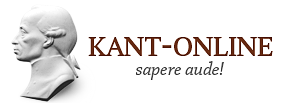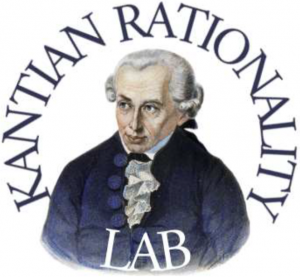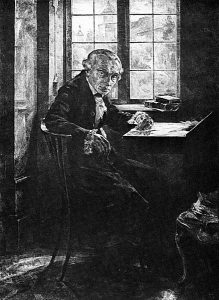KANTIAN RATIONALITY IN THE PROJECT
OF THE ENLIGHTENMENT
3rd Kantian Rationality Lab Conference
15-17 October, 2021
Immanuel Kant Baltic Federal University (IKBFU), Kaliningrad
Prof. Dr. Thomas Sturm, Prof. Dr. David Bakhurst & Dr. Andrey Zilber
Kant clearly thinks that the power of reason can and ought to play a central role in education of new generations and in the Enlightenment that is still a vital social project of today. But how can and should his famous demand to “think for oneself” be strengthened in today’s world? What strategies of teaching promote adequate reasoning or critical thinking skills, and thereby help to cope with information overload, populism and propaganda, or strengthen the authority of science, the rationality of society and democracy? When should the teaching of norms of both epistemic and moral rationality start, with what methods, and how long does it take for such education until such norms become sufficiently internalized? How does teaching such norms and skills differ from other areas of education? Can such education make possible a “New Enlightenment”, and what shape should it take? How does philosophy in these areas relate to empirical science? The conference aims to present and critically discuss Kantian perspectives on these and related issues.
Program (CET=Kaliningrad time)
October 15 – Chair: Thomas Sturm
14:30 David Bakhurst & Thomas Sturm: Welcome
14:45 Kate Moran (Brandeis University): Do Children Have Common Sense? Morality, Pedagogy, and Common Human Reason
15:45 Sergio Alberto Fuentes Gonzalez (Kaliningrad): Redeeming Knowledge – The Potential of a Kantian Account on Thought Experiments in Polydisciplinary Classrooms
16:45 Break
17:15 Mikhail Zagirnyak (Kaliningrad): Sociability and Education in Kant and Hessen
18:15 David Bakhurst (Kingston, CA & Kaliningrad): Sapere Aude! On Thinking for Oneself
19:15 End of Day 1
October 16 – Chair: Polina Bonadyseva
14:30 Andrea Kern (Leipzig): Kant on Virtue Acquisition
15:30 Martin Sticker (Bristol & Kaliningrad): Kant’s Ethics and (Cultural) Pluralism
16:30 Break
17:00 Andrey Zilber (Kaliningrad): The Negative Wisdom of Political Enlightenment
18:00 Peter Baumann (Swarthmore, PA): Enlightenment as Perfection, Perfection as Enlightenment? Kant on Thinking for Oneself and Perfecting Oneself
19:00 End of Day 2
October 17 – Chair: David Bakhurst
14:30 Jens Timmermann (St Andrews): Why, how and when is The Fact of Reason a Fact?
15:30 Michael Bishop (Florida State University): How to Teach People to Reason Better
16:30 End of Day 3
This event is the last in a series of three international conferences organized by the Kantian Rationality Lab – an international research project located at the Immanuel Kant Baltic Federal University (Kaliningrad). The project, with currently 22 team members, focuses in study of Kantian rationality in philosophy of science, in ethics and in the project of Enlightenment.
Our conferences are supported by the Ministry of Science and Higher Education of the Russian Federation grant no. 075-15-2019-1929, project Kantian Rationality and Its Impact in Contemporary Science, Technology, and Social Institutions, Immanuel Kant Baltic Federal University (IKBFU), Kaliningrad.



